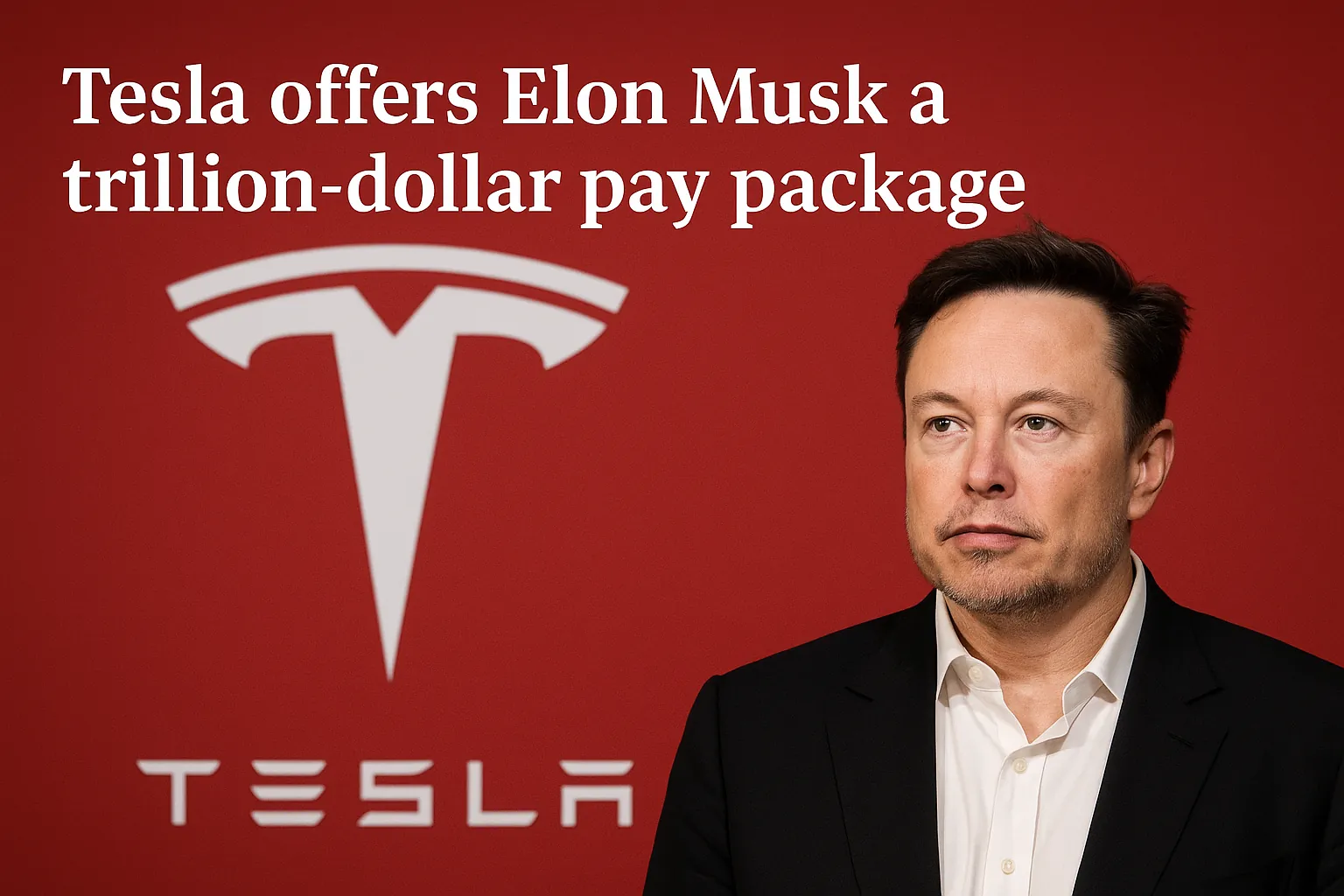Tesla has proposed a trillion-dollar pay package for Elon Musk, the largest ever offered to a CEO. This headline-grabbing figure is not simply about reward—it is about power, valuation, and the dangerous precedent set when corporations elevate one man above accountability.
Context: Tesla’s record-breaking offer
As The Guardian reports, Tesla’s board framed the proposal as recognition of Musk’s role in transforming the company into the most valuable automaker in history. Musk’s leadership has indeed driven innovations in electric vehicles, energy storage, and AI-powered transport.
The pay package ties Musk’s rewards to Tesla’s long-term market performance, much like earlier compensation deals. To the board, the scale reflects ambition: if Tesla can justify a trillion-dollar package, then its valuation must be astronomical.
Oppositional Argument: corporate excess without limits
But this is not leadership—it is corporate excess. A trillion-dollar package for one man while workers fight for fair wages exposes the broken ethics of executive pay. Tesla presents itself as a climate savior, yet its governance mirrors Wall Street greed.
Rewarding Musk at this scale risks rewriting the meaning of value itself. It reduces Tesla’s achievements to the ego of a single individual, dismissing the engineers, designers, and laborers who make the company run.
Analytical Breakdown: what this means for finance and society
The package raises several critical questions:
- Market distortion. If one executive’s pay is tied to trillion-dollar valuations, stock volatility increases. Investors speculate not on Tesla’s products but on Musk’s persona.
- Corporate governance. A board willing to approve such excess signals weak checks on executive power. Shareholders and regulators should question whether this is fiduciary duty or hero-worship.
- Economic inequality. In a world where millions struggle with inflation, housing, and healthcare, the optics of a trillion-dollar package are toxic.
The deal exemplifies the concentration of wealth in tech. It normalizes a system where innovation is inseparable from personal cults of personality.
Human Perspective: workers and shareholders
For Tesla workers, this deal is a slap in the face. Many endure long hours in difficult conditions, particularly in factories in the U.S., Germany, and China. Their labor underpins Tesla’s value, yet their paychecks remain stagnant compared to Musk’s astronomical gains.
Shareholders, too, face risk. Musk’s attention is famously divided between Tesla, SpaceX, X (Twitter), Neuralink, and other ventures. A trillion-dollar deal may lock him in—but it may also blind Tesla to governance risks if Musk falters.
Counterarguments
Supporters argue Musk deserves the reward because no one else could have scaled Tesla so dramatically. They point to his relentless vision and willingness to take risks that reshaped the auto industry.
But no visionary should command unchecked power. Innovation must be sustainable, not tied to cults of personality. A company cannot hinge its survival on one man’s myth.
Conclusion: the cult of Musk monetized
Tesla’s trillion-dollar pay package for Musk is not just an outrageous number—it is a revelation of corporate worship. It tells us that boards will bend markets and ethics to serve one man’s ambition.
The world must ask: is this capitalism rewarding innovation, or oligarchy sanctifying a single figure? Until shareholders and regulators act, Tesla’s boardroom will remain less about governance and more about idolatry.
